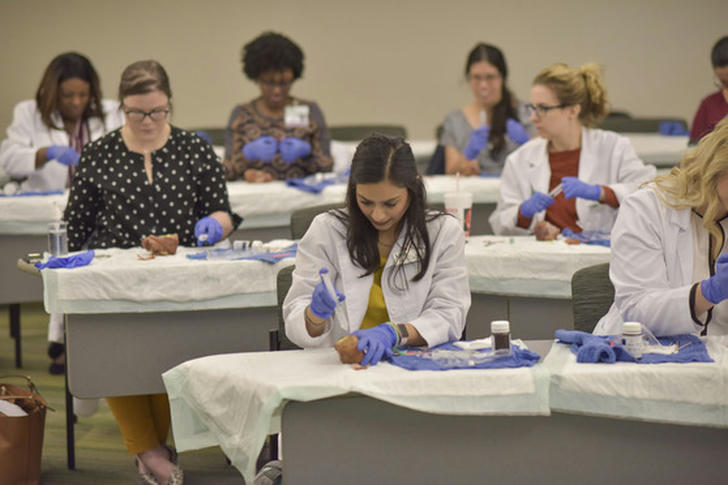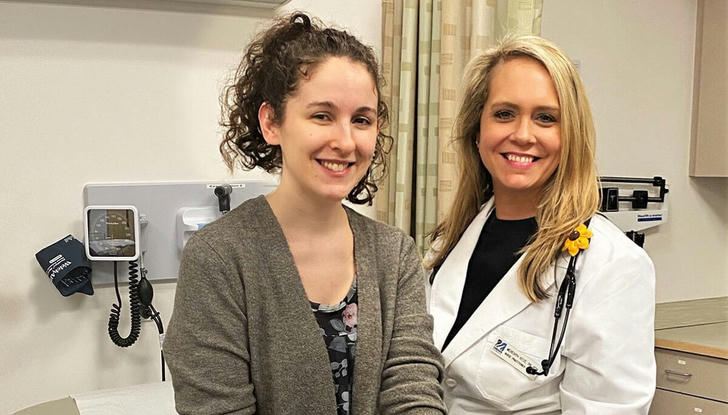Pursue a Nursing Master's Degree: Elevate Your Career and Make an Impact
A Master’s degree in nursing offers numerous opportunities for career growth, higher salaries, and the ability to specialize in a field aligned with your passions. As the healthcare industry continues to grow and evolve, advanced education has become essential for nurses seeking leadership, education, and specialized roles. Whether you aim to become a nurse practitioner (NP), nurse educator, or healthcare administrator, a nursing master’s degree can equip you with the skills, knowledge, and credentials needed to succeed.

What Is a Nursing Master's Degree?
A nursing master's degree is an advanced academic program designed for registered nurses (RNs) who wish to deepen their clinical knowledge, enhance their leadership abilities, and develop specialized skills. The degree typically takes 1.5 to 3 years to complete, depending on the program's structure and whether you attend full-time or part-time. Programs offer various tracks and concentrations, such as:
• Nurse Practitioner (NP): Specialize in areas like family practice, pediatrics, or adult-gerontology.
• Nurse Educator: Prepare to teach and train the next generation of nurses.
• Nurse Administrator: Take on leadership roles in healthcare organizations and manage nursing staff.
• Clinical Nurse Specialist (CNS): Collaborate with healthcare teams to improve patient care in specific clinical settings.
Benefits of Earning a Nursing Master's Degree
1.Career Advancement:
A nursing master’s degree opens doors to advanced clinical roles such as Nurse Practitioners (NPs), Nurse Anesthetists, or Nurse Midwives. These positions offer more autonomy in patient care, higher pay, and increased career satisfaction.
2.Increased Earning Potential:
Nurse Practitioners, for example, earn an average annual salary of $120,000—significantly higher than Registered Nurses, whose average salary is about $75,000 (according to the U.S. Bureau of Labor Statistics). Advanced practice roles like Nurse Practitioners and Nurse Anesthetists rank among the highest-paid positions in nursing.
3.Specialization and Expertise:
The chance to specialize in areas like pediatrics, geriatrics, oncology, or family practice allows you to become an expert in a specific field, making you a critical asset in healthcare settings.
4.Leadership and Administrative Roles:
Nursing master's programs often include leadership training, empowering you to transition into roles such as nurse manager, healthcare administrator, or policymaker. These roles allow you to shape healthcare practices on a larger scale.
5.Job Security:
The healthcare industry is projected to grow by 15% from 2019 to 2029, much faster than the average for other industries. Nurses with advanced degrees are crucial to meeting the needs of the aging population and increasing healthcare demand.
Personal Testimonials: Real Success Stories
▶Emma Roberts, Nurse Practitioner (NP):
Emma, a graduate of the University of California, San Francisco’s MSN program, says, “Earning my Nurse Practitioner certification has allowed me to take on a more dynamic role in patient care. I now have the autonomy to diagnose and treat patients independently, which has been incredibly fulfilling.”
▶David Lin, Nurse Educator:
David, who graduated from Johns Hopkins University with an MSN in Nurse Education, shares, “Becoming a nurse educator was my dream. I’m now teaching at a local university and helping prepare the next generation of nurses. The MSN program gave me the tools to make an impact as both a nurse and an educator.”

Top Master’s Degree in Nursing Programs
If you’re considering pursuing a nursing master's degree, here are some top programs offering comprehensive training and specialization options:
1. University of California, San Francisco (UCSF)
Specializations: Family Nurse Practitioner (FNP), Pediatric Nurse Practitioner (PNP), Psychiatric Nurse Practitioner (PMHNP), Nurse Educator, Nurse Leader.
Duration: 2 to 3 years.
Tuition: Approximately $40,000 per year.
Application Deadline: Fall applications due by February 1st.
Unique Offerings: UCSF is known for its rigorous NP programs with a strong focus on clinical skills and patient care autonomy. The program combines online courses with clinical practice in diverse healthcare settings.
2. Johns Hopkins University
Specializations: Nurse Practitioner, Nurse Educator, Nurse Leadership.
Duration: 1.5 to 2 years.
Tuition: Around $45,000 per year.
Application Deadline: Rolling admissions, with priority given to early applications.
Unique Offerings: Johns Hopkins offers flexible online learning options and provides tailored paths in specialties such as adult-gerontology and family practice.
3. University of Pennsylvania
Specializations: Adult-Gerontology, Family Nurse Practitioner, Nurse Leadership.
Duration: 2 to 3 years.
Tuition: Approximately $50,000 per year.
Application Deadline: December 1st.
Unique Offerings: Penn’s MSN program combines evidence-based practice with hands-on training in world-class healthcare facilities. Students benefit from a flexible schedule and an extensive alumni network.
4. University of Southern California (USC)
Specializations: Nurse Anesthesia, Family Nurse Practitioner, Nurse Leader.
Duration: 2 to 3 years.
Tuition: Around $60,000 per year.
Application Deadline: November 1st.
Unique Offerings: USC offers an innovative hybrid learning experience that combines online coursework with clinical practice in Los Angeles and surrounding areas. USC is one of the few programs offering a dedicated Nurse Anesthesia track.
5. Vanderbilt University
Specializations: Nurse Practitioner, Nurse Educator, Clinical Nurse Leader.
Duration: 2 years.
Tuition: Around $45,000 per year.
Application Deadline: April 1st.
Unique Offerings: Vanderbilt’s MSN program emphasizes evidence-based practice and leadership. The Clinical Nurse Leader track focuses on improving patient care through leadership and management strategies.
Financial Aid and Scholarships
These programs offer various forms of financial assistance, including merit-based scholarships, need-based grants, and loan repayment options. Scholarships range from a few thousand dollars to full tuition and are often contingent on academic performance or enrollment in specific programs. Many programs also provide additional support for students from underserved communities or those employed at affiliated hospitals.
• University of California, San Francisco (UCSF): Scholarships such as the $3,000 disbursed over six semesters for students maintaining a GPA of 3.0 or higher.
• Johns Hopkins University: Merit-based scholarships ranging from $5,000 to full tuition, with additional awards for nurses employed at Johns Hopkins affiliate hospitals.
• University of Pennsylvania: Endowed scholarships and grants, as well as loan forgiveness programs.
• University of Southern California (USC): Scholarships and loan repayment options are available, with further details on the financial aid website.
• Vanderbilt University: Merit-based scholarships, including a $1.25 million donation to fund scholarships for students entering the MSN program.
For up-to-date information about financial aid opportunities, visit each program’s official website before applying.

Shape Your Future with a Nursing Master's Degree
A Master’s degree in nursing is a powerful step toward career advancement, higher salaries, and specialized expertise. With numerous specializations to choose from, you can tailor your education to meet your personal career goals and help address the growing needs of the healthcare system. Whether you want to provide direct patient care, educate the next generation of nurses, or lead healthcare organizations, an MSN can offer the expertise and opportunities necessary to reach your full potential.
